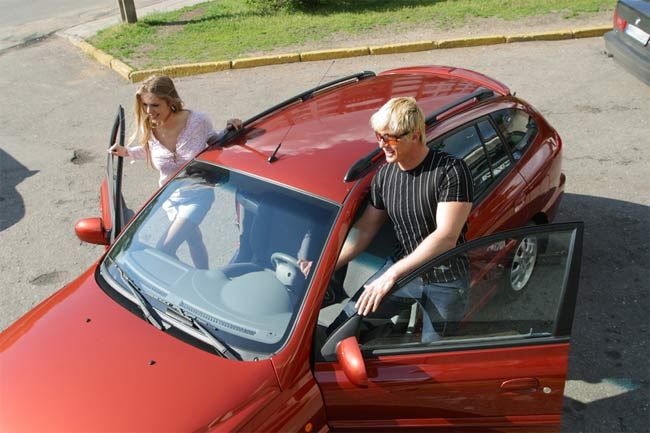Car Sharing Skyrockets as Gas Prices Soar

Owning a car is so yesterday. With rising fuel prices, some people apparently are ditching their wheels and flocking to the alternative, share-a-car route.
Car-sharing company Zipcar just announced record membership compared to last year. The company reported an average of 10,000 new members per month, triple the number joining at the same time last year. Zipcar and other car-sharing services allow members to reserve a car for a particular time at a certain location, where they will pick up and drop off the loaner vehicle.
To get more details on the boost in membership, Zipcar officials collected survey information from 20,000 Zipcar members living in Atlanta, Boston, Chicago, New York, Philadelphia, Pittsburgh, Portland, San Francisco, Seattle and Washington, D.C.
Zipcar found that 40 percent of new members cited rising fuel cost as the reason for joining. In fact, respondents reported saving more than $600 a month since they no longer had to pay the everyday costs of owning and operating a car.
Sixty-five percent of respondents said they got rid of a household vehicle or decided against purchasing one after becoming members.
The result, Zipcar reports, has an impact on city roads and the environment. Some "green" findings included:
- Members reported driving an average of 2,200 miles (3,540 km) less per year.
- 40 percent of the respondents who were Zipcar members said their joining led them to use public transportation more.
- At current membership levels, the service will save 16 million gallons of gasoline and 150 million pounds of carbon dioxide annually, Zipcar says.
Every gallon of gasoline, which weighs 6.3 pounds (2.9 kg), can produce 20 pounds (9 kg) of carbon dioxide when burned. So, if you drive, say, 12,000 miles annually in a car averaging 30 miles per gallon, your car would emit more than 9,000 pounds of carbon dioxide in a year.
Sign up for the Live Science daily newsletter now
Get the world’s most fascinating discoveries delivered straight to your inbox.
Roads also feel the effect of car-sharing, as Zipcar estimates current membership has resulted in 75,000 fewer personally-owned vehicles on U.S. roads.
While Zipcar is the largest such service in the United States, several other organizations, such as City CarShare, Austin Car Share and Hour Car, operate in various cities and states. Zipcar merged with the then second largest car-sharing service, Flexcar, in late 2007.
- 101 Amazing Earth Facts
- Find a Recycling Center Near You
- Innovations: Ideas and Technologies of the Future
Jeanna Bryner is managing editor of Scientific American. Previously she was editor in chief of Live Science and, prior to that, an editor at Scholastic's Science World magazine. Bryner has an English degree from Salisbury University, a master's degree in biogeochemistry and environmental sciences from the University of Maryland and a graduate science journalism degree from New York University. She has worked as a biologist in Florida, where she monitored wetlands and did field surveys for endangered species, including the gorgeous Florida Scrub Jay. She also received an ocean sciences journalism fellowship from the Woods Hole Oceanographic Institution. She is a firm believer that science is for everyone and that just about everything can be viewed through the lens of science.











